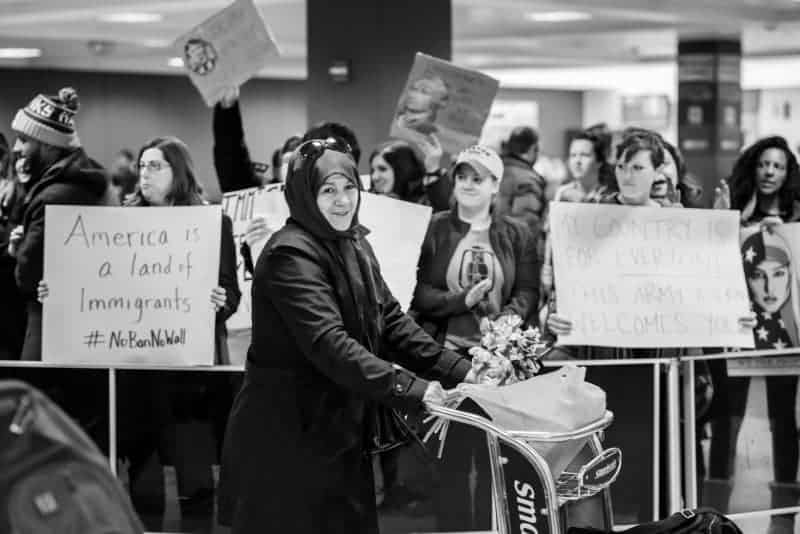Social Entrepreneurs Stand Up to White House in Defense of Muslim Rights

- News
Yesterday, more than 170 global heads of social entrepreneurship organizations, including Acumen’s Founder and CEO, Jacqueline Novogratz, signed a letter denouncing President Trump’s recent Executive Order banning individuals from seven Muslim-majority countries from entering the United States. The seven countries included in the ban are Syria, Iraq, Iran, Libya, Sudan, Yemen, and Somalia.
The letter, which emphasizes inclusiveness as a guiding principle to building global prosperity for the world’s poor, states: “We respectfully request, Mr. President, that you do not deny us the right of welcoming people, regardless of their religion or nationality, to our shores. We must continue to communicate the values of inclusiveness and opportunity for all.”
Set in motion by Room to Read’s Founder John Wood, the letter was inspired by an amicus brief filled by executives in Silicon Valley who argued that the ban would limit their ability to recruit and hire diverse global talent.
Among the co-signers of the letter are leading social entrepreneurs and NGO heads Premal Shah (Kiva), Gary White (Water.org), Sally Osberg (Skoll Foundation), and Jeff Skoll (The Jeff Skoll Group).
Immediately following Trump’s action on January 27, travelers from the seven countries were detained at airports across the United States, sparking nationwide protests in opposition to the order. On February 4, a Seattle judge issued a temporary restraining order of the ban, postponing its enforcement nationwide.
Our work to build a world based on dignity depends on our ability to stand for and defend values based on inclusivity and generosity. It means welcoming others fleeing persecution with open arms. It means protecting the rights of a parent to pursue a better life for their child. It means emphasizing the value of diversity within our organization and working intimately with the populations that we serve.
At Acumen, we also believe that one of basic tenets of dignity is freedom—freedom to pursue opportunities and ideas, and freedom to make choices for oneself in pursuit of a better life. Unless we commit as a world to protecting basic human rights for all, not just for some, we risk leaving the poorest and most marginalized among us behind.
Photo Credit: Geoff Livingston
